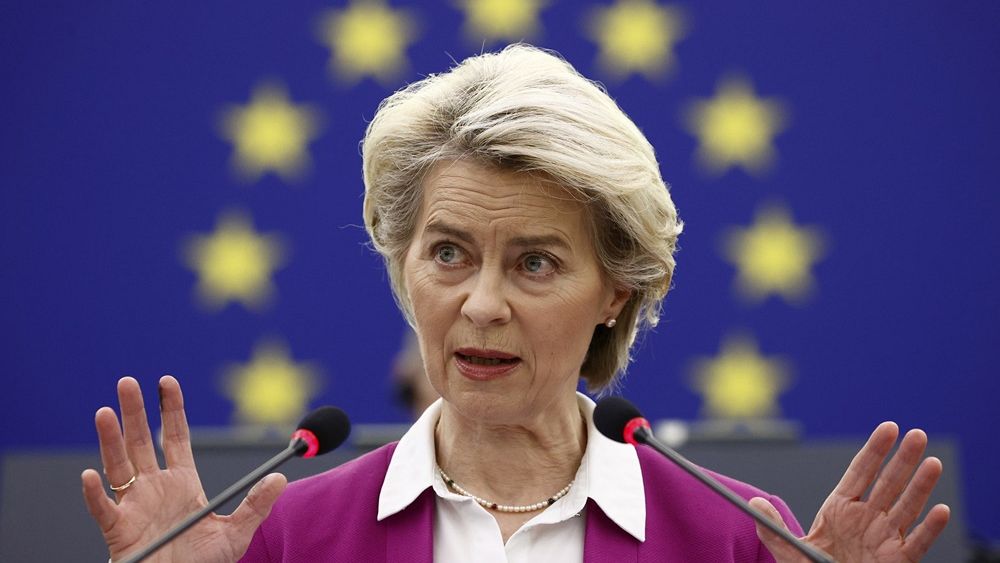
In the midst of the geopolitical confrontation unravelling at the Belarus-Poland border, the European Commission has unveiled new plans to punish transport companies that aid and abet the smuggling and trafficking of people.
The draft law will apply to all kinds of transport – land, air and sea – and will empower the executive to suspend a range of rights, including the right to provide transport services, to fly over and transit across EU territory and to refuel and carry out maintenance.
The move comes in response to growing suspicions over the role played by Belarusian state-owned carrier Belavia.
Brussels believes the airline helped Belarus President Alexander Lukashenko to bring migrants from the Middle East and African countries all the way to Minsk, where they were then pushed towards the borders with Poland, Latvia and Lithuania.
Lukashenko has denied inviting migrants but he recently told the BBC that it is “absolutely possible” his troops helped them cross into Poland.
The border crisis has been going on since early summer, but the situation took a dramatic turn earlier this month, when hundreds of new arrivals suddenly showed up at the Belarus-Poland frontier, mainly at the Kuźnica crossing point, with the goal of travelling to Germany.
The episode led to international outrage and condemnation. The EU has already agreed to expand its already-long list of sanctions against Belarus.
“Let us be clear: these migrants are being vilely misled by false promises. We have to combat this,” Commission President Ursula von der Leyen told the European Parliament.
“That is why we are proposing that a watchlist be drawn up for all means of transport based on international law on the trafficking and smuggling of migrants.”
The legislation presented on Tuesday afternoon is a step forward in the bloc’s plans to up the ante and prevent similar episodes in the future. The law will empower the Commission to slap transport companies with punitive measures to curtail their movements and cripple their business operations.
Under the new rules, Brussels will be able to directly target commercial operators that are taking an “active part” in the smuggling of migrants and those that “organise, direct, aid, abet, facilitate or counsel the commission” of such crime. The Commission will have to gather evidence to back its claims and give the company an opportunity to respond to the accusations.
Planes, lorries, trains, buses, ferries and cruises anywhere in the world could be singled out.
Blacklisting will be done through the suspension of one or several rights across EU territory, such as the right to provide transport services, to fly and transit, to refuel, to carry out maintenance and to call into ports. Brussels will also be able to withdraw licences and authorisations and to limit transport operations anywhere in the European Union.
The penalties will be applied right after the Commission formally adopts them. Member states will have two weeks to raise any objections. The sanctions can stay in place for up to one year and be reviewed at any time.
The Commission noted the blacklisting measures will not affect EU passengers, who will retain the right to reimbursement, re-routing and compensation in case their flights are disrupted.
Like any other regulation, the text, which is notably short at 12 pages, has to be negotiated and approved by the European Parliament and the Council, which means its provisions will not be used during the present crisis, unless the situation extends over time.
“I hope that we will not need to use the regulation and the transport operators will themselves act to avoid being an accessory to the crime of trafficking and smuggling. But we’re prepared to take action if they don’t,” Adina Vălean, EU Commissioner for transport, told reporters, hoping the co-legislators agree “quickly” on a final version.
Arrivals at the EU’s eastern borders have decreased after the bloc sent its top officials on a diplomatic tour to pressure countries of origin, like Lebanon, the United Arab Emirates and Iraq, into stopping Minsk-bound flights. However, tensions remain high, with thousands of migrants stranded between Belarus and Poland. Lukashenko has demanded that Germany take in 2,000 people that remain on the border, but Berlin replied this was not acceptable solution.
Access to the border area is restricted, making reports hard to verify.
The EU is now focussing its political efforts on repatriation and reallocation in cooperation with the United Nations and the Red Cross.
On Tuesday, the Commission announced €3.5 million for voluntary returns and €700,000 in humanitarian assistance, as well as an extra €200 million for border management in Latvia, Lithuania and Poland, which will exclude the construction of barbed wires and walls.
“Member States facing such a hybrid attack must be able to respond effectively to the emergency situation they face,” President von der Leyen told MEPs.
“At the same time, they need to fully respect fundamental rights and international obligations. Both points are crucial and we need to find a way to reconcile them.”
Belarusian carriers are still banned from EU airspace and EU airports due to a decision taken in June after Minsk diverted a Ryanair passenger plane and arrested dissident journalist Roman Protasevich.